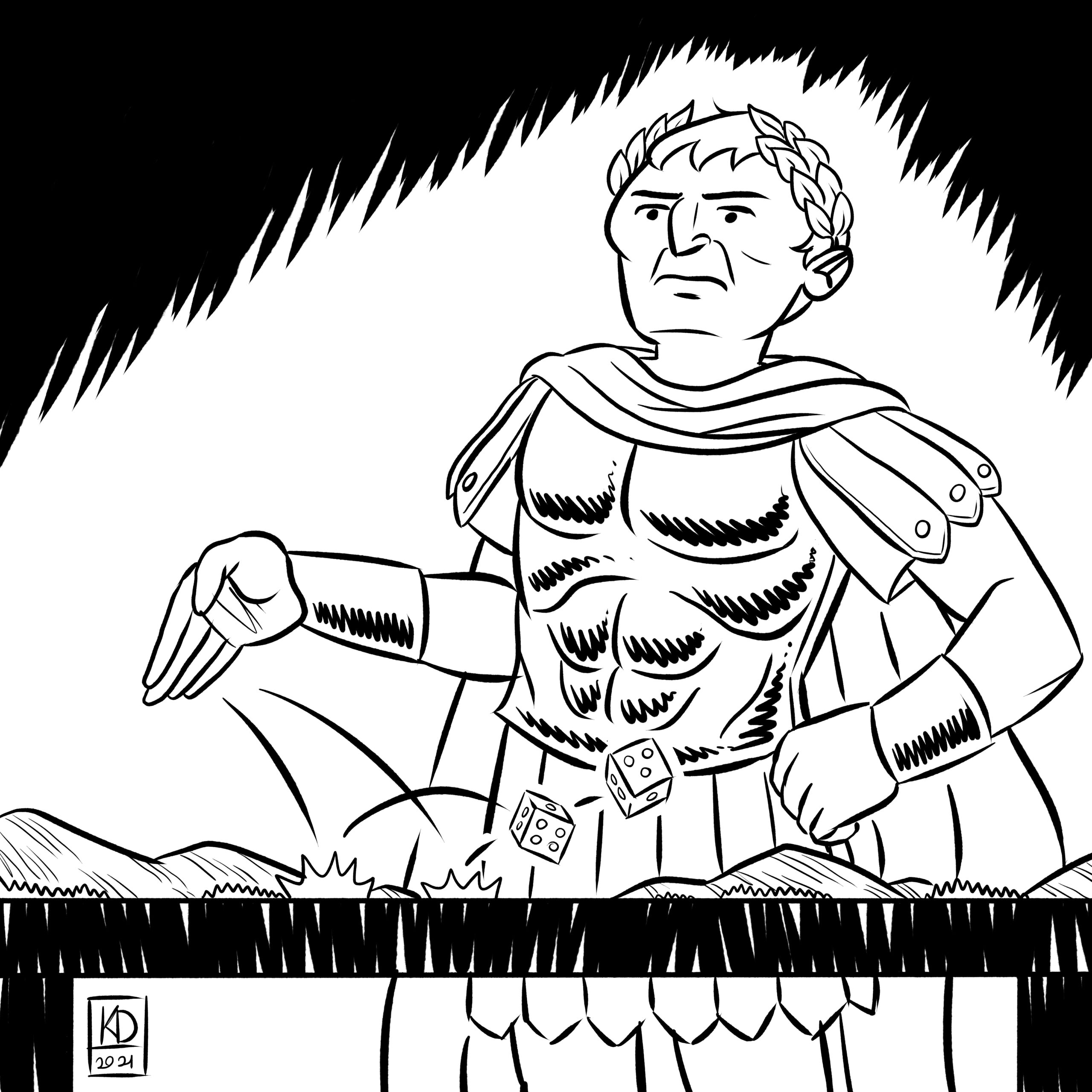There are times when a small gesture or seemingly insignificant message alone can be worth billions. The context, range, power of authority, social expectations or fears – in other words, the circumstances as a whole – can give a symbol a powerful persuasive force, and at the same time bring fortune for some and serious trouble for others.
EXECUTIVE SUMMARY:
- An event that appears trivial may, under certain circumstances, become of major importance to a company, generating losses or even jeopardizing its very existence.
- The unpredictability of some events does not excuse a company from taking a number of risks into account and preparing to face them.
- A responsible company constantly analyses its environment and has scenarios in place for various, even seemingly unlikely, circumstances.
The power of a gesture has been painfully demonstrated in recent days to the Coca-Cola Group. The beverage manufacturer, which has been investing in the sponsorship of major sporting events for decades, lost several billion dollars in capitalization after a single press conference about a football match. What happened was that the Portuguese star Ronaldo pointedly put down his bottle of the famous drink, took out his own and announced that one should drink water, not coke. The power of the personal brand of arguably the best footballer in history has turned the gesture of putting down the bottle into concrete, gigantic money that naturally could be made, provided that someone had predicted the star player’s intention and invested their capital well in advance.
Crossing the Rubicon
The pioneer of the ability to use clever gestures to captivate crowds and achieve large-scale goals while making a great fortune was the Roman Julius Caesar, who lived over two thousand years ago. We are completely wrong to regard him as an outstanding leader and politician, in fact his true greatness should be attributed to his brilliant self-promotion. He could fight neither better nor worse than many who came before and after him, he was a rather ineffective politician, but the power of the fame he established for himself, with the substantial help of his nephew and successor, continues to this day, be it in the name of the seventh month of the year, which still, in many languages, is named after Julius.
Caesar knew how to apply clear, vigorous and severe gestures and images to appeal to the mass imagination and give meaning and social force to decisions made against law and reason through symbols. With the “die being cast“, the military crossing of the border river of Italy, and thus the rebellion against the republic, appeared to be widely supported. The power of gesture and symbol was greater than the authority of legitimate power and it neutralized the unfavorable balance of armed force. As a result, the opponents of Caesar, who acted lawfully, lost their power and some of them also lost their lives.
Disaster of undershirt manufacturers
Hardly anyone remembers the black-and-white American comedy from almost a century ago. Meanwhile, the impact that the 1934 film It Happened One Night had on the world of men’s fashion continues to this day. In one scene, the idol of the cinema at the time, Clark Gable pulls off his shirt, permanently changing the rules of the game in the men’s fashion market with this seemingly most ordinary gesture. The astonished audience saw something that had previously been unthinkable: the greatest star of cinema did not wear an undershirt. It didn’t take long to see the results, shirts started to be worn directly on the body and the demand for undershirts significantly dropped. According to various sources, sales of the previously obligatory item of men’s clothing fell by 40 per cent in the USA, driving the underwear industry to despair.
It is believed that the actor thus decided to reinforce his own image as a rebellious, boundary-breaking individual. The impact on men’s fashion was perhaps just an accidental side effect of the star’s eccentric behavior. However, if someone had foreseen the commercial potential of the man’s gesture at the time, invested properly and persuaded the actor beforehand, he could have made a lot of money.
Elon Musk’s tweets and the cryptocurrency exchange rate
Gestures, symbols and publicly expressed opinions can still shake markets today. It hardly seems that such a small thing as a tweet, i.e. a short message sent via a portal invented for simple social entertainment, can have any major significance. After all, almost 2 billion tweets of this kind are created every day. Well, that” s not the case. When, in February, the [eccentric multi-billionaire Elon Musk[(https://businessinsider.com.pl/finanse/kryptowaluty/elon-musk-a-kurs-bitcoina-wpis-miliardera-o-tesli-i-kryptowalucie/fxrh9j4) first announced Tesla’s acquisition of bitcoin and the acceptance of bitcoin payments, only to announce a little later a hundred-million-dollar profit from their sale, it seriously shook up the exchange rate. Further turbulence was caused by his May withdrawal from cryptocurrency payments under the guise of – oh yes – protecting the planet and his subsequent tweet about changing his stance. The fluctuations in bitcoin’s exchange rate, triggered by one man’s petty post, are giving tens of millions of investors around the world heart palpitations, literally creating and annihilate their mini fortunes in a blink of an eye. Again, some lose and some gain.
Ronaldo and a healthy lifestyle
Ronaldo’s gesture of putting down his sweet drink with a look of distaste has certainly reinforced the image of a role model built up over the years. This simple boy, brought up in humble, austere conditions on the remote island of Madeira, reaches the unthinkable due to his titanic work and unwavering will to succeed. This modern-day hero, the perfect athlete breaking every possible record, stands up to public expectations by promoting a healthy lifestyle and defying one of the planet’s largest corporations. As a result, the popularity of his social media accounts, the sales of T-shirts with his name on them and the value of the contracts he signs are growing even more.
Of course, if you look deeper into the matter, you can see the inconvenient details. In the past, the very same Ronaldo had no problem at all promoting battered chicken that was widely regarded as unhealthy but loved by children, as part of a contract with a powerful US restaurant chain. On the other hand, he had the opportunity to get to know Coca-Cola’s fizzy drinks better as the face of their campaign in Asian markets. So there is an abundance of opinions saying that the footballer was not so much concerned with a healthy lifestyle and setting an example for young people, as with the fact that the high revenues from the advertising contract went into the pockets of the tournament organizer, and not the footballers, who are the main players in this game. The power of the gesture in this case, however, was so strong that all that was left for the drinks manufacturer to do was to declare that nothing had happened and that everyone has the right to their own taste preferences.
Si vis pacem, para bellum
Gestures and symbols are part of marketing and branding activities carried out by both self-brand builders and image-conscious companies. However, they are a double-edged weapon and can also be used against an organization, often not always intentionally and completely unexpectedly. So how do you defend against this? There is no one hundred per cent surefire way, because, as N.N.Taleb argues in his brilliant book: “many Black Swans are caused and exacerbated by their being unexpected”.(1) The Black Swan is so rare in nature that we do not assume we will encounter it. Likewise, in our day-to-day business activities, we do not analyze the possibility of facing sudden, unexpected events, hitting our company, its share price or sales figures the way a football star struck a cola producer. Meanwhile, such “black swans” occur in real life far more often than we realise and can have a greater impact on business than all the other issues we diligently predict and analyze.
When searching for ways to avoid the unfortunate undershirt manufacturers” story, it is worth referring again to the ancient Romans and their approach to defense. In pursuit of “if you want peace, get ready for war” principle, the most powerful state in ancient times maintained constant combat readiness on its borders, funding the operation of seemingly oversized garrisons designed to defend against unpredictable barbarian attacks. Thanks to this approach, Rome was able to keep the state constantly plagued by surprise attacks from various tribes safe for several centuries. Contemporary organizations should be aware that a “black swan” event can occur at any time. The circumstances that were previously unknown and unpredictable require an immediate, effective response. Sometimes this response can only minimize losses, sometimes the circumstances make it possible to neutralize the threat altogether. Therefore, an in-depth analysis of the environment and the creation of thoughtful alternative scenarios in the event of potential “black swans”, minimize the effect of being caught by surprise and allow for a rapid anti-crisis response.
Sławomir Krenczyk
1 Nassim Nicholas Taleb “The Black Swan: The Impact of the Highly Improbable"


